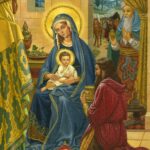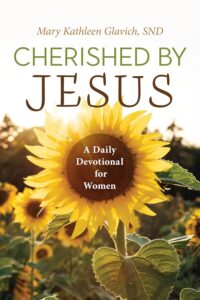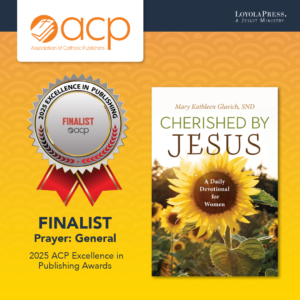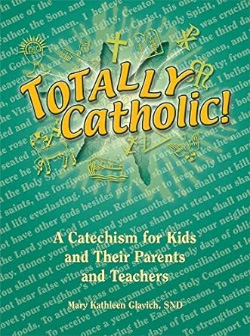 In keeping with the Christmas season, I’m continuing to share excerpts from my book Voices: Messages in Gospel Symbols. Chapter 2 is a meditation on gold: First among the three gifts the kings from the east present to Jesus is gold. Gold is the best they can offer. This most precious metal is a gift for a king, fitting tribute to the newborn king of heaven and earth. The infant is himself God’s gift to us—the Son, the Father’s treasure, not only precious but priceless (though he would someday be valued at only thirty pieces of silver). And this unparalleled gift is the culmination of a world full of golden gifts: sunbeams, dandelions, autumn leaves golden agers, and smiles. God is never outdone when it comes to gift-giving.
In keeping with the Christmas season, I’m continuing to share excerpts from my book Voices: Messages in Gospel Symbols. Chapter 2 is a meditation on gold: First among the three gifts the kings from the east present to Jesus is gold. Gold is the best they can offer. This most precious metal is a gift for a king, fitting tribute to the newborn king of heaven and earth. The infant is himself God’s gift to us—the Son, the Father’s treasure, not only precious but priceless (though he would someday be valued at only thirty pieces of silver). And this unparalleled gift is the culmination of a world full of golden gifts: sunbeams, dandelions, autumn leaves golden agers, and smiles. God is never outdone when it comes to gift-giving.
What gift can we make in return? Our all. The power of Jesus enables us to turn the dross of our daily lives into riches; Midas-like, we can change our moments into gold. This alchemy is achieved not by an incantation or a magic potion, but by intention. If we deliberately unite ourselves with Christ and our acts with his saving acts, our lives have consequences of cosmic proportions: they redeem humankind and give glory to God. In surrendering ourselves to God we become his possession and our most mundane actions take on untold value.
How good to be God’s “gold.” We should not fear to be tested and purified by fire. We can accept the pains of misunderstanding, persecution, rejection, illness, the suffering of loved ones, all as somehow essential to our ultimate formation in the furnace of God’s love. There, refined by fire, we grow more worthy to be in God’s presence. Moreover, we take on the qualities of divine love and flame it forth.
Gold is the most malleable and ductile of metals. Yielding easily to the artificer’s touch, it is made useful and beautiful. If we would heed God’s voice ur ging us to pursue the good, if we would be open to the human instruments God uses to shape us, and if we would respond with trust and hope to what God allows to happen to us, then, to borrow Blessed Mother Teresa’s words, we would truly make our lives something beautiful for God.
ging us to pursue the good, if we would be open to the human instruments God uses to shape us, and if we would respond with trust and hope to what God allows to happen to us, then, to borrow Blessed Mother Teresa’s words, we would truly make our lives something beautiful for God.
Unfortunately for us, instead of being co-creators, we sometimes thwart God’s designs. When we are challenged to choose the difficult, we respond with apathy or we flee. Where we are asked for mercy and understanding, we offer the cold rock of unforgiveness. Where we are invited to share the cross, we cry out in protest. Where we are expected to love and obey, we let pride and stubbornness rule us. Where we could make the time for God to work on us, we afford him only the leftover moments from our days. When we do these things, we are not true gold but fools’ gold.
The value of our lives is augmented only when we learn to let go and let God. This means to give up our preconceived notions of God, ourselves, people, and things and let them be as they are. It means to stop playing tug-of-war when God tries to take something from us. It means to free ourselves from the strangling grip of compulsions. It means to retreat from the frantic race to be a success and just enjoy life. It is to live in the now and not in the past or the future.
Gold has always held a special allure. People have rushed to the ends of the world for it, married for it, fought for it, and killed for it. But the most valuable things in life gold can’t buy: faith, love, peace, wisdom and grace, for instance. We can give away everything and still be rich. Once we divest ourselves of possessions that separate us from God and smother our desire for them, the tapestry of our lives will be shot through with golden threads of goodness, peace, and joy. Our ambition should not be to own a vault of gold, but a heart of gold.
In a way, gold is not the right gift for the king in the manger. What do you suppose he did with it?









2 Responses
The Holy Family probably shared their wealth with other refugees and outcasts. A beautiful piece of writing. Check my block to see what I said about the gold we give the Babe of Bethlehem. Sr. Juliemarie
A nice tie-in with my blog and the feast of Epiphany, Sr. Juliemarie. Readers, you might want to see Sister’s poem at http://www.prayerpoems.org.